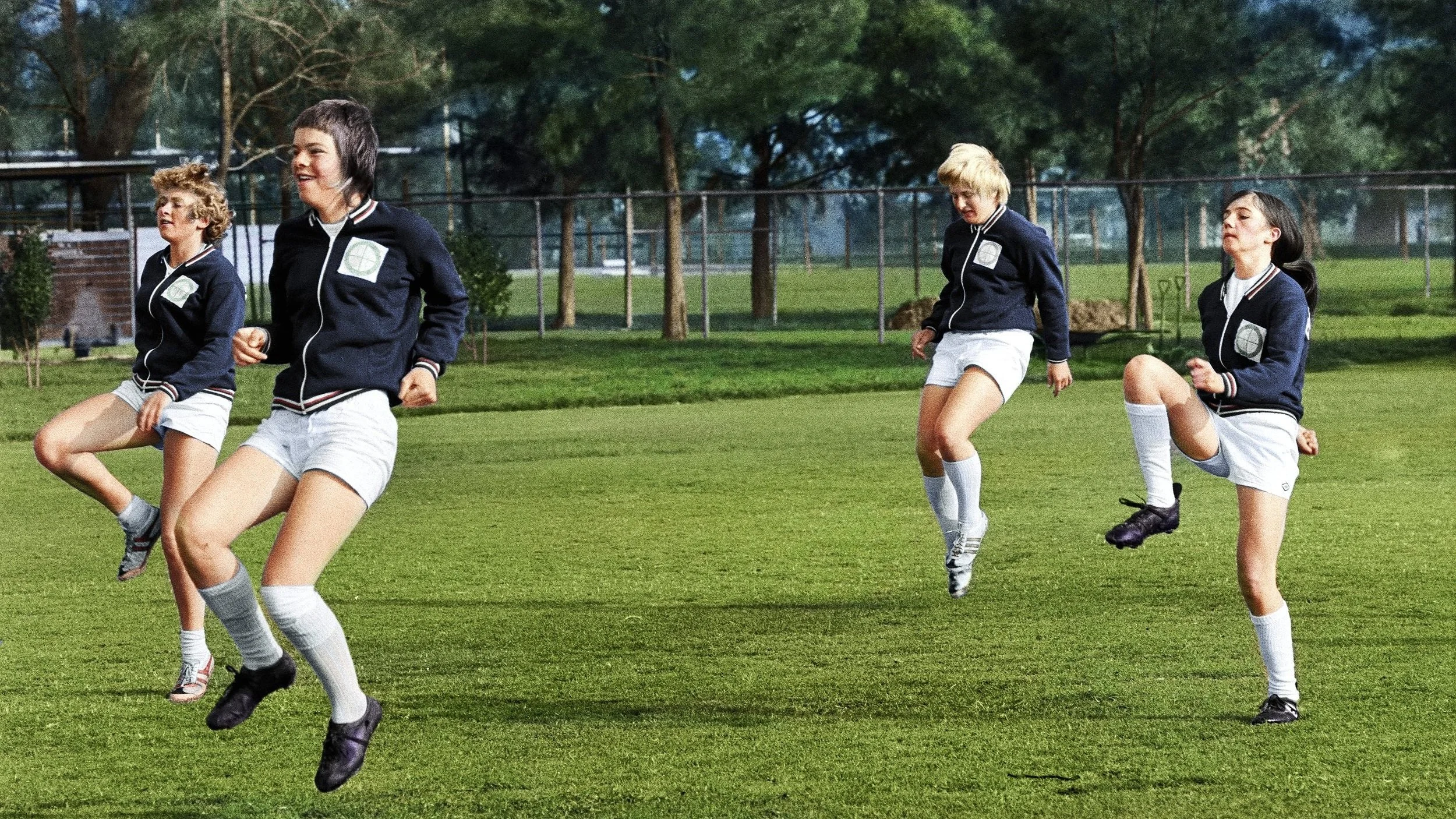Copa 71
Rachel Ramsay and James Erskine’s resurrection of the 1971 Women’s World Cup in Mexico will appeal even to those not enamoured of football.
At the close of this documentary we are informed that women's football is now the fastest growing sport on the planet and in the UK the excitement around the Lionesses and their endeavours in the 2023 World Cup was exceptional. That could be taken as a sign that there will be a vast audience for this masterly film which focuses on a major sporting event that is less well remembered than one would expect. That was the 1971 Women's World Cup held in Mexico and reclaiming its rightful place in history is somewhat akin to what was done in the recent classical music documentary Fanny: The Other Mendelssohn which expressed the right of the composer Fanny Mendelssohn to be recognised for her achievements. Different as their backgrounds are, in both instances we have an illustration of how under male influence history has played down achievements by women.
That is an element that could draw audiences to Copa 71 and I hope that it does although, rightly or wrongly, I have heard it said that sports enthusiasts are inclined to lack enthusiasm for cinema. In this context it is worth emphasising that my own interest in sport is non-existent but, utterly contrary to what I might have anticipated, I thoroughly enjoyed Copa 71 and can accordingly recommend it even to audiences not attracted by the sport featured in it. The justification for that lies both in the human appeal that comes across here and in the sheer skill of the filmmaking: plaudits to the editors, Arturo Calvete and Mark Roberts, to the photographer Angela Neil and to the co-directors Rachel Ramsay (formerly known as a producer but here directing for the first time) and James Erskine whose earlier work in the field of sporting documentaries includes 2018’s The Ice King.
In the opening scenes of Copa 71 we see the footballer Brandi Chastain looking at footage of the 1971 World Cup and admitting that she had been unaware of it. That's confirmation in itself of the value of making a film about it and the timing is ideal because this documentary is able to feature contributions from fifteen or so of the players who participated and who now comment on their memories of the event. They include women from Mexico itself, from Denmark, Italy, France, Argentina and England (the latter’s captain Carol Wilson included). This variety of voices proves very engaging and the new footage here, which also includes useful information supplied by the historian David Goldblatt and the journalist Marion Reimers, is admirably blended with well chosen extracts from the various games in 1971 leading to the final. Given that the event is forgotten to the extent that it is, viewers will in many cases enjoy the suspense of not knowing how the play-offs will turn out and which countries will reach the final. Normally, I would not care in the least about who would win any particular match but here, having met so many appealing personalities looking back on their endeavours in 1971, I felt a real interest as to the outcome.
There is, of course, more to it than that because, in addition to giving us an insight into the female camaraderie that extends beyond the bonding within one's own team, the film is revealing about the history of the sport, its ups and downs and the extent to which those in authority have proved to be male chauvinists. If the film has a villain – and it assuredly does – it is FIFA. When it comes to such details as featuring a split screen or incorporating a song with a strong feminine impact (‘These Boots are Made for Walkin’’/ ‘I’ve Got the Music In Me’) it feels wholly apt and is never overdone. The film may linger just a little bit too much in its last few minutes, but for the most part this is admirable filmmaking. Perhaps you do need to be a sports enthusiast to call this a masterpiece but anybody who sees it will surely regard it as time well spent.
MANSEL STIMPSON
Featuring Carol Wilson, Ann Stengård, Birte Kjems, Elena Schiavo, Chris Lockwood, Nicole Mangas, Elba Selva, Silvia Zaragoza, David Goldblatt, Elvira Aracén, Trudy McCafffery, Marion Reimers, Maurizia Ciceri, Alicia Vargas, Martha Coronado, Brandi Chastain, Alex Morgan, Daniela Sogliani, Janice Barton, Leah Caleb.
Dir Rachel Ramsay and James Erskine, Pro Victoria Gregory, Jannat Gargi and Anna Godas, Ex Pro Alex Morgan, Isha Price, Serena Williams and Venus Williams, Screenplay Rachel Ramsay, James Erskine and Victoria Gregory, Ph Angela Neil, Ed Arturo Calvete and Mark Roberts, Music Rob Lord.
New Black Films/Westbrook Studios/Dogwoof-Dogwoof Releasing.
90 mins. UK. 2023. UK Rel: 8 March 2024. Cert. PG.


